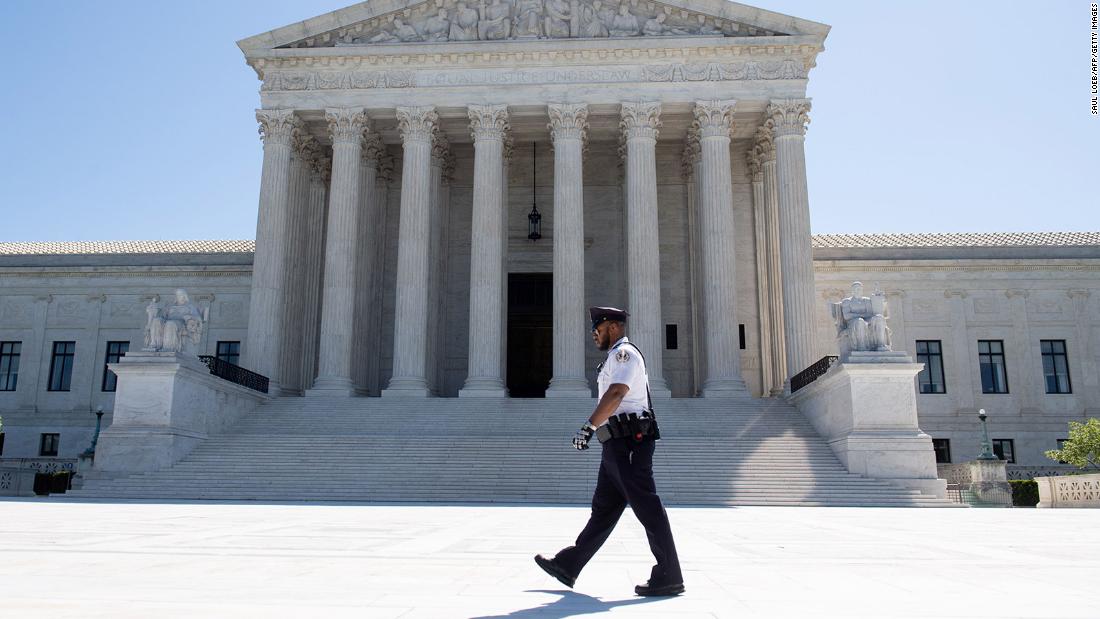
The legislation has no chance of passage in the GOP-led Senate, where Republicans are trying to fast-track a successor to Ginsburg and enshrine a conservative majority for a generation. Democrats have accused the GOP of a power grab and argue that the iconic liberal justice's successor should be picked by the next president, but Republicans say it's the President's constitutional prerogative to fill the empty seat.
But under the "Supreme Court Term Limits Act," after a justice serves 18 years on the Supreme Court, they would be allowed to continue serving on a lower court.
The legislation would exempt the current justices from the term limits. It would also change the appointment process, making it so every president has the opportunity to appoint only two justices during their four years in office. A president would nominate a new justice in the first and third year of their presidency.
Under the measure, justices who serve out their terms would be known as a "senior justice." If a vacancy were to occur because of a death or removal, the "senior justice" would temporarily rejoin the bench until the vacancy is filled. The Senate would also have 120 days to act on a president's nomination or the nominee will be seated on the Supreme Court.
The bill's sponsors — Democratic Reps. Ro Khanna, Joe Kennedy III and Don Beyer — plan to formally introduce the legislation in the House on Tuesday.
"We can't face a national crisis every time a vacancy occurs on the Supreme Court," Khanna said in a statement Friday. " No justice should feel the weight of an entire country on their shoulders. No president should be able to shift the ideology of our highest judicial body by mere chance."
"Most importantly, our country's top constitutional questions shouldn't be decided by a panel of jurists who are biding their time until a president of their choice is elected," the California Democrat added.
Breyer, a Virginia Democrat, argued that the "recent upheaval in the Court has only made it clear how much that reform is needed."
By law, Congress can set the number of justices, but terms limits on the justices may require a change to the Constitution, which has been interpreted to give justices life terms. A constitutional amendment would be more difficult to pass than a bill since it requires ratification by three-fourths of the 50 states.
Some Republicans have previously expressed support for term limits for justices, including Chief Justice John Roberts early in his career and 2016 GOP presidential candidates, former Texas Gov. Rick Perry and current Housing and Urban Development Department Secretary Ben Carson.
According to Khanna, this is the first time term limits for Supreme Court justices has been proposed as legislation, rather than a constitutional amendment.
President Donald Trump plans to announce his nominee to the bench on Saturday, and Senate Majority Leader Mitch McConnell — over Democrats' objections — has vowed to bring the nominee to a vote on the Senate floor. Conservative judge Amy Coney Barrett, a federal appellate judge and Notre Dame law professor, is currently viewed as the leading contender.
The confirmation of a new justice appointed by Trump would establish a 6-3 conservative majority on the high court, shifting its balance of power for decades, which could have major implications for future decisions over health care or any election year disputes. Some Democrats have proposed packing the court with more justices to offset the impact of a third Trump appointment.
"term" - Google News
September 26, 2020 at 01:05AM
https://ift.tt/3693VnU
House Democrats to introduce bill setting 18-year term limit for Supreme Court justices - CNN
"term" - Google News
https://ift.tt/35lXs52
https://ift.tt/2L1ho5r
Bagikan Berita Ini

















0 Response to "House Democrats to introduce bill setting 18-year term limit for Supreme Court justices - CNN"
Post a Comment